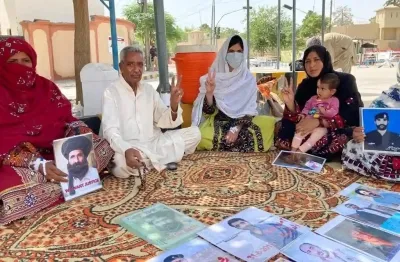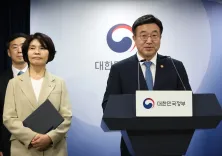Are Mob Killings Highlighting Pakistan’s Growing Intolerance Towards Ahmadis?

Synopsis
Key Takeaways
- The recent mob killings highlight systemic intolerance in Pakistan.
- Ahmadis face legal and social discrimination since 1974.
- International bodies have urged Pakistan to take action against violence.
- Extremist groups are capitalizing on the culture of impunity.
- The plight of Ahmadis tests Pakistan's political maturity.
New Delhi, Sep 7 (NationPress) The recent murder of a physician in Sargodha and the brutal lynching of an individual outside an Ahmadi Mosque in Karachi have raised serious alarms about Pakistan’s treatment of its religious minorities, particularly the Ahmadis.
Numerous international human rights organizations assert that these events are not mere isolated incidents but rather manifestations of a deeply rooted culture of intolerance, exacerbated by the inaction of the state.
Since the 1974 amendment to Pakistan’s Constitution that designated Ahmadis as non-Muslims, this community has endured systemic discrimination, with acts of violence against them often justified in the name of religion.
Legislation criminalizing their religious practices has emboldened extremists, putting Ahmadis at risk of harassment, prosecution, and targeted violence. Analysts contend that the recent murders in Sargodha and Karachi are not anomalies but rather the inevitable outcome of decades of sanctioned exclusion and political concessions.
Organizations such as Tehreek-e-Labbaik Pakistan (TLP) have taken advantage of this climate. With their street influence and incendiary rhetoric supporting blasphemy laws, TLP has normalized acts of vigilante violence, as reported by eurasiareview.
“This rhetoric, amplified through social media and legitimized by political compromises, has normalized vigilante violence. Such normalization not only erodes domestic stability but also tarnishes Pakistan’s international reputation,” the report stated.
Importantly, the US Commission on International Religious Freedom (USCIRF) recommended once more in its 2025 report that Pakistan be designated a 'Country of Particular Concern.' Human Rights Watch and Amnesty International have echoed these sentiments, urging Islamabad to not only denounce these attacks but also to hold both perpetrators and instigators accountable.
Amnesty has explicitly warned that a failure to act fosters a culture of impunity.
Likewise, the United Nations for Human Rights has previously expressed “shock” at the escalating violence against vulnerable communities, citing ongoing attacks and discrimination against Ahmadis based on their beliefs.
Observers have pointed out that Pakistan’s justice system remains compromised. Police frequently remain passive during mob attacks, while weak legal actions result in few convictions. Survivors seeking justice often face intimidation, which further alienates minorities.
Civil society and the media continue to document these violations, but advocates argue that global silence risks complicity.
The struggles of Ahmadis represent more than a domestic issue; they serve as a litmus test for Pakistan’s political maturity and international credibility.
The recent killings starkly illustrate that indifference carries a price: for minorities living in fear and for a state striving to uphold its global reputation, all while its military leaders align with extremist groups and ignore the suffering of minorities in Pakistan.









